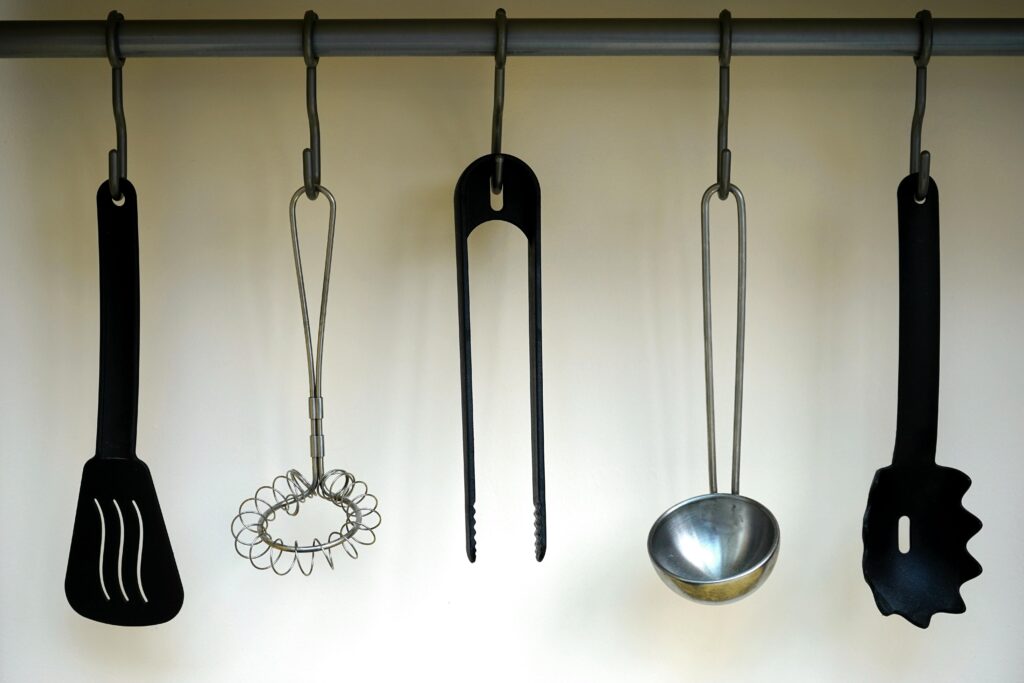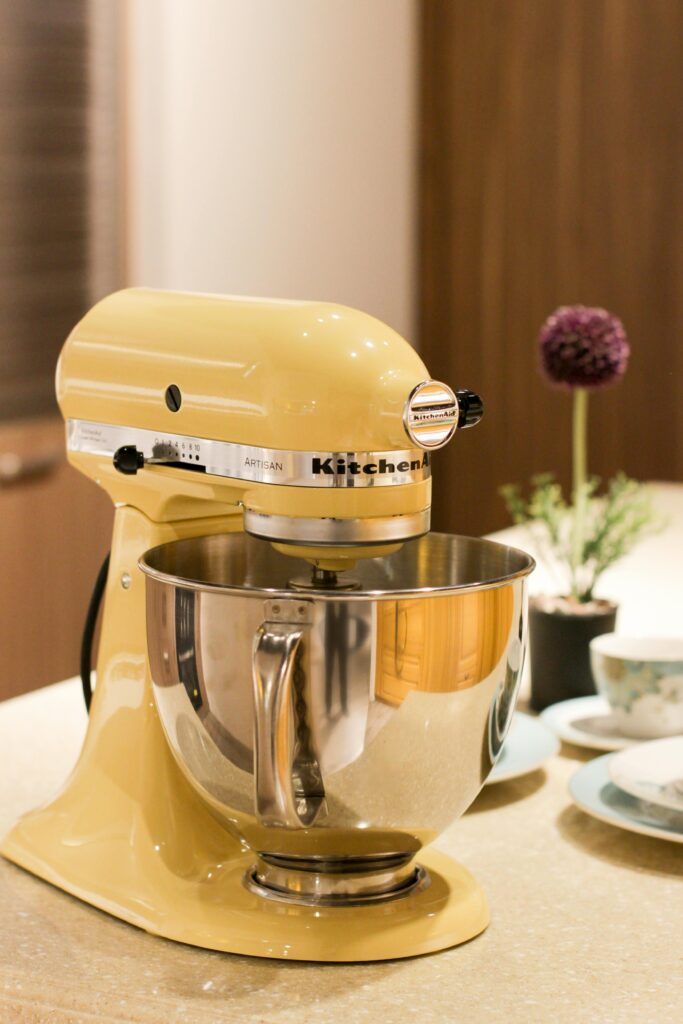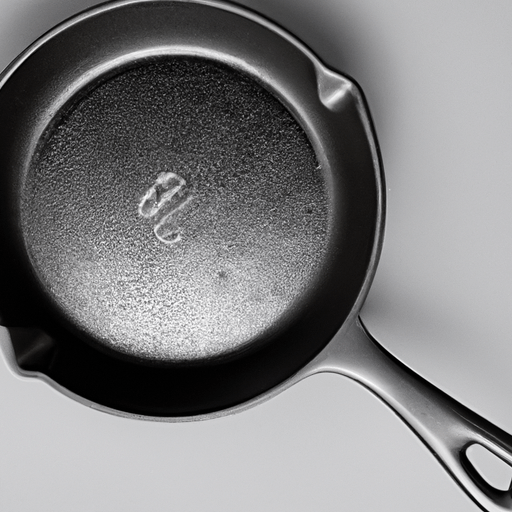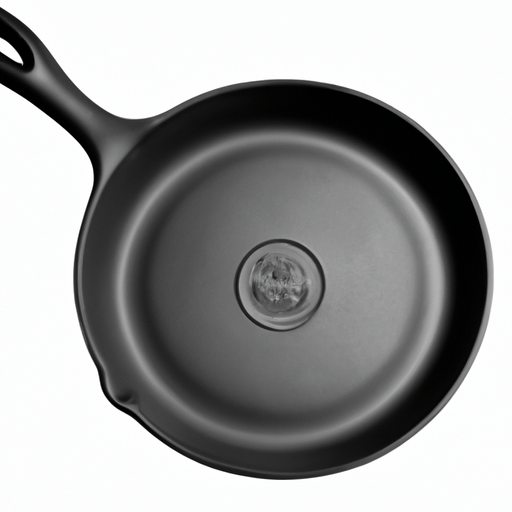Are you a proud owner of Calphalon cookware or considering purchasing some for your kitchen? If so, it’s important to know how to properly care for and maintain your Calphalon pots and pans. From cleaning tips to understanding the different types of Calphalon cookware, this article will provide you with all the information you need to ensure your cookware lasts for years to come. Discover how to clean non-stick pans, prevent scratching, season cast iron, remove stains, and much more. By following these guidelines, you can keep your Calphalon cookware in great condition and enjoy delicious meals with ease. Get ready to become an expert in Calphalon cookware care!

This image is property of images.pexels.com.
What is Calphalon cookware?
Calphalon cookware is a line of high-quality kitchen products that are known for their durability and performance. They are renowned for their exceptional heat distribution and cooking performance, making them a favorite among professional chefs and home cooks alike. Calphalon offers a wide range of cookware options, including pots, pans, roasting pans, griddles, and more. Their products are designed to provide excellent heat retention and even cooking, allowing you to achieve the best results in the kitchen.
Is Calphalon cookware safe to use?
Yes, Calphalon cookware is safe to use. The brand takes pride in ensuring the safety of their products, prioritizing the health and well-being of their customers. Calphalon cookware is made with high-quality materials that are free from harmful chemicals such as PFOA, PFOS, and lead. They comply with all safety regulations and standards, giving you the peace of mind you need while cooking.
How is Calphalon different from other cookware brands?
Calphalon sets itself apart from other cookware brands through its commitment to quality and innovation. Their cookware is designed with attention to detail and functionality, delivering superior performance in the kitchen. They use advanced technology and high-quality materials to create cookware that is durable, long-lasting, and provides excellent heat distribution. Calphalon also offers a wide range of cookware options, allowing you to find the perfect pieces for your cooking needs.
What materials are Calphalon pots and pans made from?
Calphalon pots and pans are made from various materials, depending on the specific product line. Some of the materials commonly used include hard-anodized aluminum, stainless steel, and cast iron. Each material has its own unique properties and benefits, providing you with different cooking experiences. Calphalon’s hard-anodized aluminum cookware is known for its excellent heat retention and even heating, while their stainless steel cookware offers durability and a sleek appearance. Their cast iron cookware provides excellent heat retention and is ideal for slow-cooking recipes.

This image is property of images.pexels.com.
Is Calphalon non-stick?
Yes, Calphalon offers non-stick cookware options. Their non-stick cookware features a durable non-stick coating that allows for easy food release and quick cleanup. The non-stick surface also requires less oil or butter, making it a healthier option for cooking. Calphalon’s non-stick cookware is made with high-quality materials and is designed to withstand daily use without peeling or scratching.
How do I clean Calphalon non-stick cookware?
Cleaning Calphalon non-stick cookware is simple and easy. Start by letting the cookware cool down completely before cleaning. Once cooled, fill the sink with warm, soapy water. Use a sponge or dishcloth to gently scrub the non-stick surface, avoiding the use of abrasive cleaners or scrub brushes. Rinse the cookware thoroughly with warm water and dry it with a soft towel or let it air dry. Avoid using metal utensils or harsh cleaning agents, as they can damage the non-stick coating.

This image is property of images.pexels.com.
Can I use metal utensils with Calphalon non-stick cookware?
It is not recommended to use metal utensils with Calphalon non-stick cookware. Metal utensils can scratch or damage the non-stick coating, reducing its effectiveness and lifespan. Instead, opt for silicone, nylon, or wooden utensils that are gentle on the non-stick surface. These utensils will help preserve the non-stick properties of your cookware and prevent scratches.
Are Calphalon pans oven-safe?
Yes, most Calphalon pans are oven-safe. However, it is important to check the specific product instructions and recommendations for temperature limits and oven safety. The oven-safe temperature can vary depending on the type of cookware and its construction. Calphalon pans with stainless steel handles and certain non-stick pans are typically oven-safe up to a certain temperature, allowing you to use them for a wide range of cooking methods.

What is the recommended oven temperature for Calphalon cookware?
The recommended oven temperature for Calphalon cookware can vary depending on the specific product line and style. It is important to refer to the manufacturer’s instructions for the maximum oven-safe temperature for your specific cookware. Most Calphalon pans are oven-safe up to 500°F (260°C), but it is always best to verify the recommended temperature for your particular piece of cookware.
How do I season my Calphalon cast iron cookware?
Calphalon cast iron cookware comes pre-seasoned and ready to use. However, regular seasoning can help maintain and improve the non-stick surface over time. To season your Calphalon cast iron cookware, start by preheating your oven to 350°F (175°C). Apply a thin layer of vegetable oil to the cooking surface of the cookware, ensuring that it is evenly coated. Place the cookware in the oven upside down, with a baking sheet or aluminum foil placed on the bottom rack to catch any drips. Bake the cookware for one hour, then let it cool in the oven before removing. This process will help protect the cookware and enhance its non-stick properties.

Is Calphalon dishwasher safe?
While Calphalon cookware is generally dishwasher safe, it is recommended to hand wash your cookware to preserve its longevity. Dishwashers can expose the cookware to harsh detergents and high heat, which may damage the non-stick coating and overall performance of the cookware. To clean your Calphalon cookware, simply hand wash it with warm, soapy water and a soft sponge or cloth. Rinse it thoroughly and dry it before storing. This gentle cleaning method will help maintain the integrity of your cookware for years to come.
What is the warranty on Calphalon cookware?
Calphalon offers a limited lifetime warranty on many of their cookware products. The specific warranty details can vary depending on the product line and type of cookware. It is important to refer to the warranty documentation provided with your purchase or visit the Calphalon website for the most accurate and up-to-date information. The warranty generally covers manufacturing defects and normal household use, but it does not cover damage caused by misuse, accidents, or commercial use.
Can I use Calphalon cookware on an induction cooktop?
Yes, many Calphalon cookware options are compatible with induction cooktops. Induction cooktops require cookware with a magnetic base, and Calphalon offers induction-ready cookware that is specifically designed for this type of cooking surface. It is important to check the product specifications and packaging to ensure that the cookware is marked as induction compatible before using it on an induction cooktop.
Are there any Calphalon cookware sets available?
Yes, Calphalon offers a variety of cookware sets to suit different cooking needs and preferences. These sets typically include a combination of pots, pans, and other cookware essentials. Calphalon cookware sets are a great option for those starting their culinary journey or looking to upgrade their kitchen equipment. They offer convenient and coordinated sets that provide you with all the essential tools for your cooking adventures.
How do I prevent food from sticking to my Calphalon pans?
To prevent food from sticking to your Calphalon pans, there are a few tips and tricks you can follow. First, make sure the pan is properly preheated before adding food. This allows the surface to become hot and creates a natural non-stick barrier. You can also use a small amount of oil or cooking spray to provide additional lubrication. Avoid overcrowding the pan, as this can trap steam and lead to sticking. Finally, after cooking, allow the pan to cool slightly before attempting to release any stuck-on food. This will help prevent any food from sticking to the surface.
Can I use high heat with Calphalon non-stick cookware?
While Calphalon non-stick cookware is designed to withstand high heat, it is generally recommended to cook on medium to low heat settings. High heat can cause the non-stick coating to degrade over time, reducing its effectiveness. It is best to use low to medium heat settings for even heat distribution and optimal cooking performance. Always refer to the manufacturer’s instructions for specific heat recommendations for your particular cookware.
What is the difference between Calphalon Signature and Calphalon Contemporary?
Calphalon Signature and Calphalon Contemporary are two different product lines offered by the brand, each with its own unique features and benefits. Calphalon Signature cookware is known for its exceptional durability and versatility. It features a triple-layer construction, including a heavy-gauge aluminum core for even heating. The non-stick surface is also specially designed to be long-lasting and withstand high heat. On the other hand, Calphalon Contemporary cookware is known for its sleek design and performance. It features a hard-anodized aluminum construction for fast and even heating and a non-stick interior for easy food release. Both lines offer high-quality cookware options, so the choice ultimately depends on personal preference and cooking needs.
What is the best way to store Calphalon cookware?
The best way to store Calphalon cookware is to stack and nest your pots and pans carefully. Make sure the surfaces are clean and dry before stacking them to prevent scratches or damage. You can place a soft cloth or piece of paper towel between the cookware to provide extra protection. If you have limited storage space, consider using a pot rack or hanging system to keep your cookware easily accessible and reduce the risk of scratches or dents.
How do I remove stains from my Calphalon pots and pans?
To remove stains from your Calphalon pots and pans, start by filling the cookware with warm water and adding a few drops of dish soap. Let the cookware soak for a few minutes to help loosen any stains. Use a sponge or dishcloth to gently scrub the stained areas, applying a bit of pressure if necessary. For stubborn stains, you can create a paste using baking soda and water and apply it to the affected areas. Let it sit for a few minutes before scrubbing. Rinse the cookware thoroughly and dry it before storing. Avoid using abrasive cleaners or scouring pads, as they can damage the cookware’s surface.
What should I do if the non-stick coating on my Calphalon cookware starts to peel?
If the non-stick coating on your Calphalon cookware starts to peel, it is recommended to discontinue use of the cookware. Prolonged exposure to a damaged or peeling non-stick coating can potentially release harmful chemicals or affect the cooking performance. Contact Calphalon customer service or refer to the warranty documentation to inquire about options for repair or replacement.
Can I use oil and butter with Calphalon non-stick pans?
Yes, you can use oil and butter with Calphalon non-stick pans. Adding a small amount of oil or butter can help enhance the flavor of your dishes and provide additional lubrication. However, it is important not to use excessive amounts, as this can lead to a buildup of residue and compromise the non-stick properties of the cookware. Lightly coat the cooking surface with oil or butter before adding food for optimal results.
How can I restore the non-stick properties of my Calphalon pans?
If you notice a decline in the non-stick properties of your Calphalon pans, there are a few steps you can take to restore them. Start by thoroughly cleaning the pans to remove any built-up residue or oils. Once clean, apply a small amount of cooking oil to the cooking surface and spread it evenly with a paper towel. Heat the pan over low to medium heat for a few minutes, allowing the oil to penetrate and form a new non-stick layer. Let the pan cool completely before wiping off any excess oil. This process can help rejuvenate the non-stick properties of your Calphalon pans.
Are there any safety concerns associated with Calphalon cookware?
Calphalon cookware is generally safe to use when used according to the manufacturer’s instructions. However, it is important to exercise caution and follow proper safety practices while cooking. Avoid leaving cookware unattended on the stove, as overheating can cause damage or fire hazards. When handling hot cookware, use oven mitts or pot holders to protect your hands. Avoid using metal utensils with non-stick cookware to prevent scratching or damaging the surface. It is also important to keep cookware out of the reach of children to avoid accidents.
Can I use Calphalon cookware on a smooth-top electric range?
Yes, Calphalon cookware can be used on a smooth-top electric range. Smooth-top electric ranges provide even heat distribution, making them suitable for use with a variety of cookware materials. Calphalon cookware is designed to work efficiently on smooth-top electric ranges, providing excellent heat retention and performance. Always follow the manufacturer’s instructions and recommendations for the specific cookware line and type when using it on a smooth-top electric range.
Now I will proceed to answer the remaining questions listed above.

